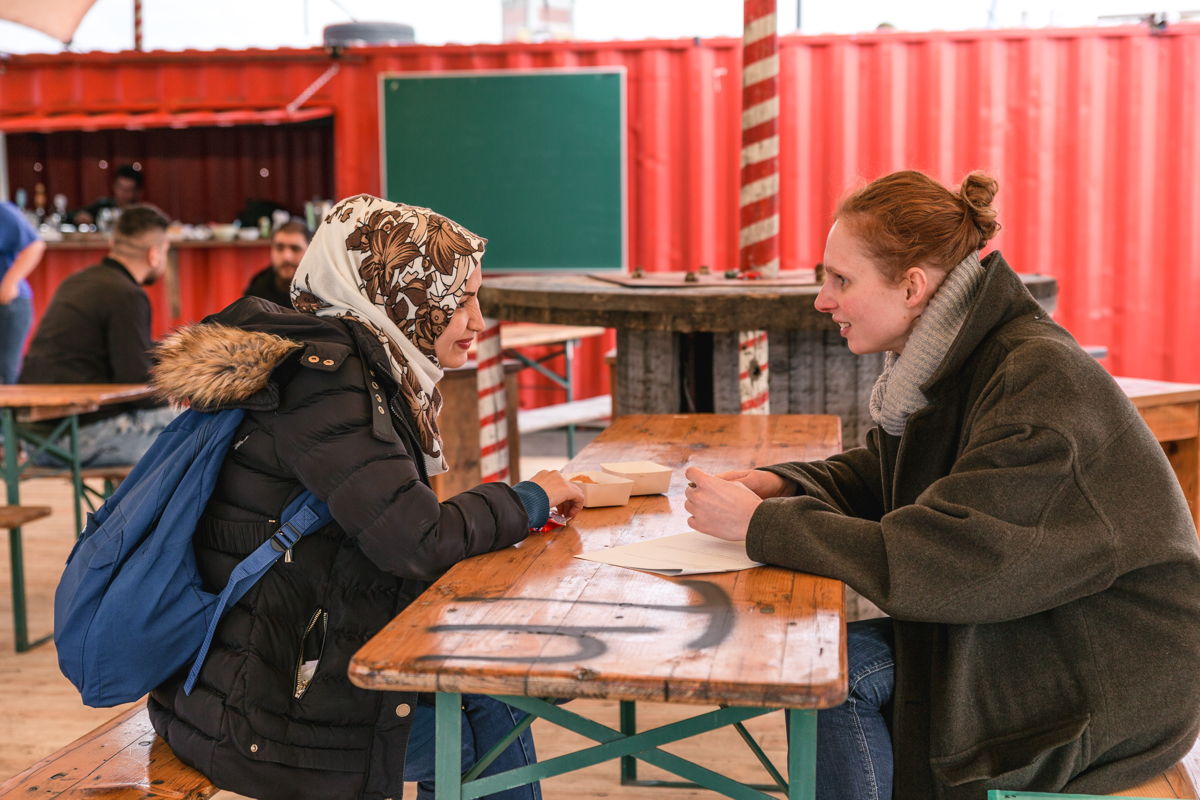Non-EU newcomers arriving in Flanders already follow a four-step mandatory integration course. Another level will soon be added, requiring those without degrees to enter a 'bottleneck profession'.
Flanders' list of 'bottleneck professions' (jobs for which employers are struggling to fill their vacancies) has continued to grow, with the list now including 234 occupations (27 more than last year). The professions at the top of the list include nursing, which is suffering the worst shortages, followed by several technical jobs and nursery staff.
In the past, Flemish Employment Service (VDAB), together with the regional government, implemented various measures to fill these positions, including through offering training and internships as well as higher wages.
However, vacancies remain, and the region is therefore looking to shift efforts up a gear. To do so, it is now looking towards non-EU newcomers.
Learning on the job
The latest figures cited by the Flemish Minister for Home Affairs, Administration, Integration and Equal Opportunities, Bart Somers (Open VLD), showed that one in three non-EU newcomers does not have a secondary education diploma, making their job search more challenging.
An OECD study showed that, in the period 2016-2021, only 36% of so-called "low-skilled" men and 17% of women new to Belgium find work after two years.
The gap in employment levels between people with and without a migration background in Belgium is the widest in the EU. The High Council for Employment already stressed in its latest report that, to address labour shortages, the mismatch between the qualifications required and the skills of newcomers in the labour market should be addressed.
Earlier this summer, Somers said that he would tackle these issues by obliging low-skilled newcomers to undergo compulsory training to fill bottleneck professions, among other things.
"Newcomers will have to be prepared to accept work in Flanders for the first three years, even if it does not directly match their level of education," Somers said. The Flemish government has given the go-ahead for this, Het Nieuwsblad reported.

Non-EU newcomers already have to take Dutch classes and spend 40 hours with a 'buddy'. Credit: Cabinet Pascal Smet
Through on-the-job training, they should learn the trade of truck drivers, nurses or childminders, among others. This learning on the job will be part of the mandatory integration programme for those without a degree.
This trajectory already includes Dutch lessons, social orientation, compulsory registration with employment intermediary VDAB and the so-called 'buddy' programme.
"If a newcomer still wants to stay at home after that programme, they can do so at their own expense. But this way, we do help them stand on their own two feet faster," Somers noted, arguing that if this employment gap is closed, almost 15,000 more people would be in work.
Stuck in profession
Somers also stressed the importance of guiding them in their native language at VDAB in the first phase until they complete their integration programme. "Language is still too often a barrier to work, while work is often a key to learning Dutch."
He also wants to oblige newcomers from within the EU who apply for a living wage or other social support to integrate and work. As more than 40% of newcomers have a higher education diploma, he also wants to guide people arriving in Belgium to eventually find a job equal to their level of education.
Labour economist Stijn Baert (UGent) noted that helping people to integrate quickly into the labour market is positive, as the longer a person is unemployed, the more difficult it is to find a job. "For people from migrant backgrounds, these arguments weigh even more heavily, as they already face such stigmas."
He also added that these bottleneck professions are often not on permanent contracts and see people working long hours, including during the night, and that there is little movement between these jobs and ones with more humane working conditions. "With this plan, migrants risk getting stuck in this segment."

